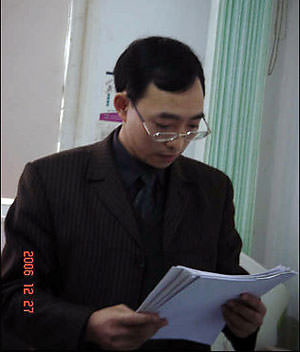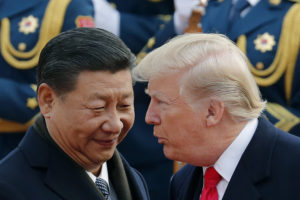For China, a Criminally Funny Poem
When Qin Zhongfei took 10 minutes to scribble down a satirical poem about local bureaucrats, he had no idea it would land him a month in jail -- a sign that free expression still languishes in China, despite hopes that President Hu Jintao's economic reforms would translate to a more open society.
When Qin Zhongfei took 10 minutes to scribble down a satirical poem about local bureaucrats, he had no idea it would land him a month in jail — a sign that free expression still languishes in China, despite hopes that President Hu Jintao’s economic reforms would translate to a more open society.
Your support matters…Washington Post:
Qin, 31, spent a month in jail on criminal charges because of a poem he wrote satirizing local officials accused of corruption. He was released only after several out-of-town newspaper articles related his fate and the central government in Beijing stepped in to halt the prosecution.
What happened to Qin, a mild bureaucrat in the county education department, was by any measure an abuse of power by local authorities here in the remote and wooded hills of central China. But more broadly, it was a vivid reminder of the Communist Party’s enduring determination to control information and opinion among China’s 1.3 billion people.
Since the party took power in 1949 under Mao Zedong, it has maintained tight censorship over radio, television, newspapers, movies, fine arts and books, carefully selecting what Chinese are allowed to know and enjoy. Human expression, it has decreed, must follow the party’s lead.
But as China has opened to the world — and as the use of cellphones and the Internet has become more common — the censors’ mission has become more difficult.
Still, controls persist. To carry out official policy, censors ban coverage of certain stories — Qin’s was censored from television — and force the party organ, People’s Daily, to fax over the front page every night for approval. Roomfuls of technicians have been enlisted to monitor millions of computers and cut off Web sites the party judges to be dangerous to its monopoly on power or unhealthy for the morals of young Chinese.
President Hu Jintao’s ascension to power more than three years ago generated hopes that information controls would loosen as part of the economic opening he has championed. But they have tightened instead. Several prominent editors have been fired over the past two years — the most recent one last month — for straining at censors’ guidelines. According to the Committee to Protect Journalists, 30 Chinese journalists are in prison for what they wrote.
Independent journalism is under threat and overshadowed by heavily funded mainstream media.
You can help level the playing field. Become a member.
Your tax-deductible contribution keeps us digging beneath the headlines to give you thought-provoking, investigative reporting and analysis that unearths what's really happening- without compromise.
Give today to support our courageous, independent journalists.






You need to be a supporter to comment.
There are currently no responses to this article.
Be the first to respond.